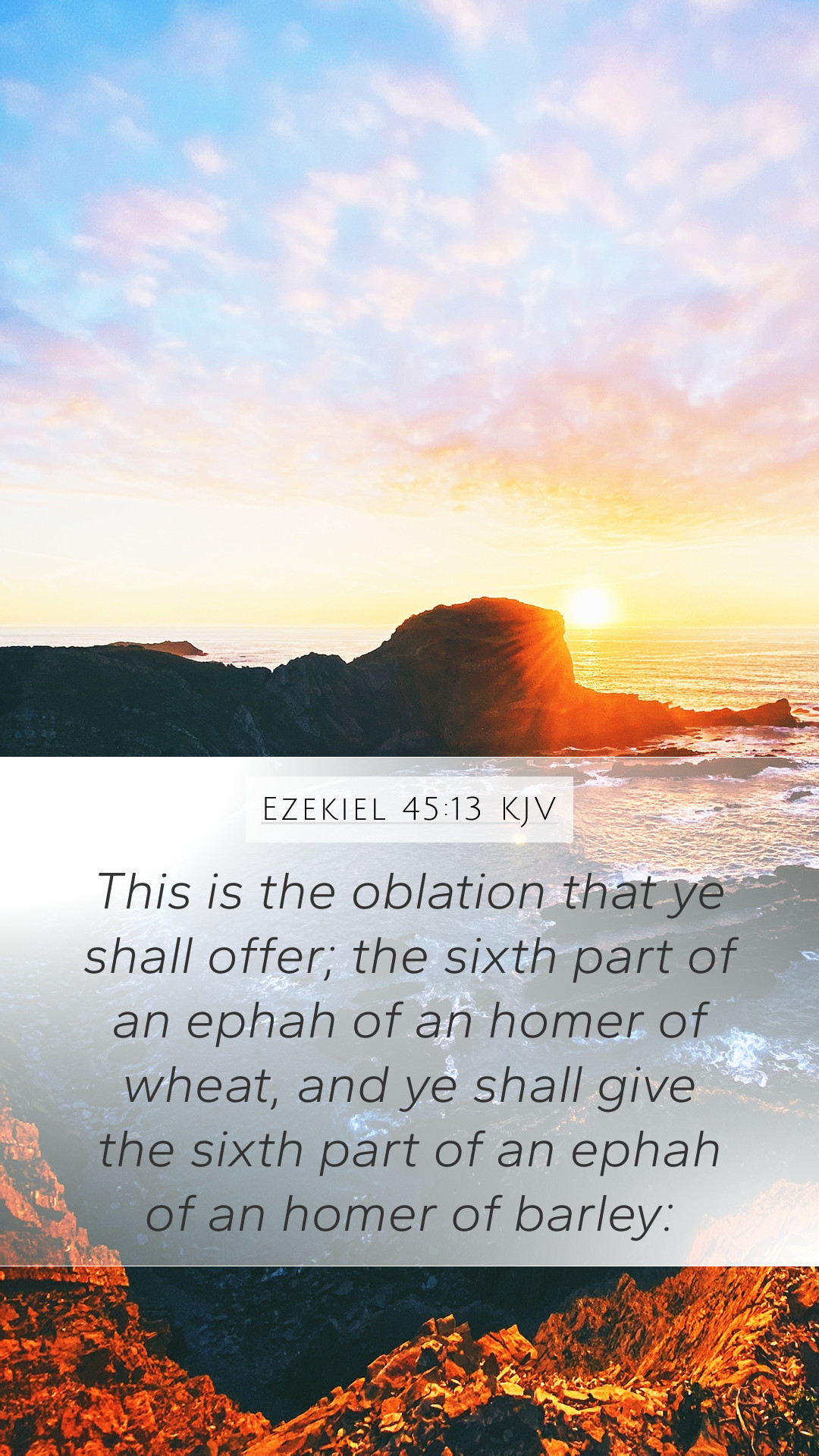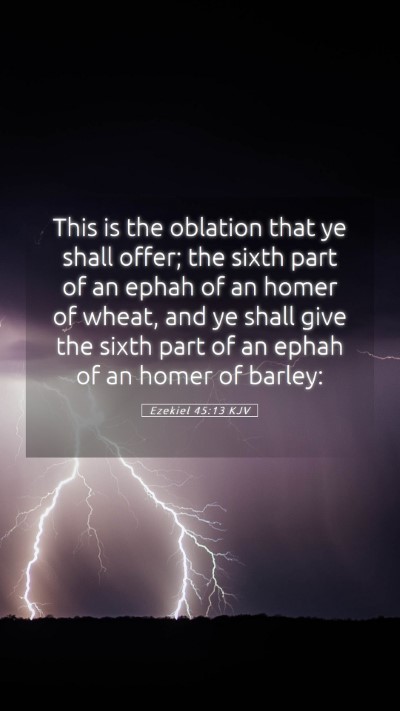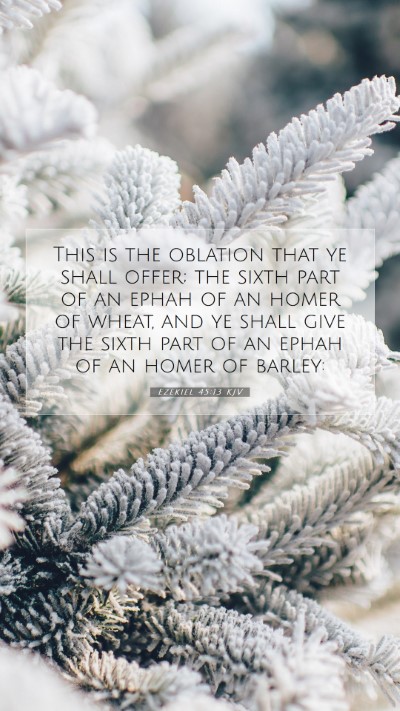Bible Verse Explanation: Ezekiel 45:13
Verse: "This is the oblation that ye shall offer; the sixth part of an ephah of an homer of wheat, and ye shall give the sixth part of an ephah of an homer of barley." (Ezekiel 45:13, KJV)
Understanding Ezekiel 45:13
This verse is part of a larger section in the book of Ezekiel that details the measurements and offerings pertaining to the future temple and the organization of sacred space. The specific mention of the required offerings reflects the restoration of Israel and the proper worship of God.
Bible Verse Meanings
- Oblation Types: The term "oblation" refers to offerings made to God. This verse specifies the precise measurements of wheat and barley to be offered, which denotes the importance of order and detail in worship.
- Symbolism of Wheat and Barley: Wheat often symbolizes abundance and blessing, while barley, being a lesser grain, can denote humility. Together, they suggest a holistic approach to offerings, encompassing both abundance and humility.
- Divine Instruction: The detailed instructions serve to remind the people of their duty to adhere to God's guidelines in worship and maintain purity in their offerings.
Bible Verse Interpretations
Commentaries by Matthew Henry, Albert Barnes, and Adam Clarke provide rich insights into this verse:
- Matthew Henry: Henry emphasizes that the exactness in measurements points to God's desire for order and precision in worship. He notes that careful attention to God's requirements is a form of respect and reverence.
- Albert Barnes: Barnes interprets this verse as part of the envisioned ideal worship system that God desires for His people. He relates it to the anticipation of a future, more perfect form of worship after the Babylonian exile, illustrating hope and restoration.
- Adam Clarke: Clarke offers a practical angle, suggesting that the offerings serve as a reminder of the people's dependency on God for their sustenance. He notes that both wheat and barley are essential staples, symbolizing God's provision.
Scripture Analysis
The passage functions not only as a historical guideline but also as a theological statement about the characteristics of true worship, including:
- Orderliness: Worship should reflect God's nature, who is a God of order.
- Holiness: The offerings remind believers that worship must come from a place of purity and dedication.
- Community: The specifics encourage community participation in worship, highlighting the collective responsibility of the people.
In-depth Bible Verse Analysis
Ezekiel was a prophet during a tumultuous time for Israel, providing a vision of restoration after exile. The temple's re-institutionalization, including the offerings, symbolizes the rekindling of the relationship between God and His people. By delineating offerings such as the sixth part of an ephah of wheat and barley, Ezekiel emphasizes spiritual renewal and the importance of intentional worship. The verse serves as an assurance to the Israelites that God remains committed to them despite their past transgressions.
Application of Ezekiel 45:13 in Daily Life
Modern believers can draw several practical applications from this verse:
- Commitment to Order: Just as the offerings had to be specific and precise, Christians are called to conduct their lives with intention and purpose, reflecting God's order.
- Spiritual Offerings: The principle of giving back to God applies today, where believers are encouraged to dedicate portions of their time, talent, and resources to God's work.
- Restoration Themes: The emphasis on restoration helps believers understand that regardless of their failures, God's grace provides a pathway back to Him.
Related Bible Cross References
- Leviticus 2:14-16: Discusses offerings of grain similar to those mentioned in Ezekiel.
- Numbers 28:26-31: Details further offerings, emphasizing the importance of proper worship.
- Malachi 1:8: Challenges the community to offer their best to God, reinforcing the necessity of quality in worship.
Conclusion
The careful study and understanding of Ezekiel 45:13 reveal the depths of God's expectations from His people in worship and offerings. Emphasizing detail in the sacrifices leads to a broader understanding of the sacredness of worshiping God. By engaging in personal reflection, group Bible study, and exploration of such scripture, believers can deepen their relationship with God and each other.


